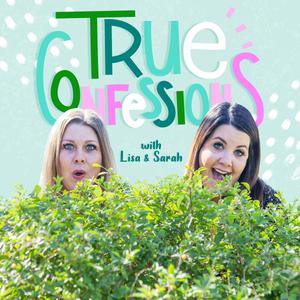
True Confessions with Lisa & Sarah
SLP Toolkit
Being a school based SLP is hard and we have made many mistakes along the way! This podcast is all about what really happens in the speech room as well as adventures in starting our own company! We would love to hear from you! Email us at [email protected] with questions or ideas for future podcasts!
- 1 hour 23 secondsE61: We didn't always know where we fit in a collaborative therapy model in the schools.
Today we have Rachael From in the confessional, a school-based SLP from the state of Washington! Rachael shares how we can do more with less by collaborating with other professionals in the school setting. In this setting, SLPs have access to many different professionals while serving students, and using everyone's collective thinking can have a much bigger impact than working with students as an individual provider in the speech room. Not only does it save time, it also allows students more time to interact with peers and be a part of the classroom. When professionals co-treat the students are able to integrate the skills they are learning and work on things simultaneously leading to better carry-over and progress with less fatigue and more engagement. Join us as we discuss who you may co-treat with in the schools, what that may look like with different levels of supports for students and how higher level of supports may benefit from more adults treating together more often. We also discuss how the differences between direct and indirect collaboration and how to effectively explain this model to parents.
30 November 2023, 1:16 pm - 1 hour 2 minutesE60: We all have at least one underserved student on our caseload.
Today we have Susan Chavez, a bilingual CCC-SLP from Southern California, in the confessional talking about working with underserved populations. People from underserved communities face daily obstacles that can impact their progress in treatment across several fields such as medicine, speech therapy, etc. For this episode, we focus on students in schools that come from underserved communities and how there are several barriers in their everyday life that have an impact on their function in school. When these students are on our caseloads, it is important for us to learn about and acknowledge these barriers so we can adjust our treatment approaches to ensure they have the same opportunities for growth and success. Resources:
- A Parent's Guide to Bilingualism | English http://www.teacherspayteachers.com/Product/A-Parents-Guide-to-Bilingualism-English-7652965?st=6a74d58e872248813c39a425e283e9f2
- Wheel of Privilege - https://kb.wisc.edu/instructional-resources/page.php?id=119380
- Parent friendly terminology blog post - https://www.slptoolkit.com/blog/What-the-heck-are-you-talking-about/
2 November 2023, 1:21 pm - 45 minutes 34 secondsE59: We were not the "ideal" grad student
This is the first time we've had an anonymous guest in the confessional, who we will call "Molly." Molly shares her experience in grad school, which was not all sunshine and rainbows. Speech-language pathology graduate programs are often rigorous, stressful, and can be down-right difficult. While in graduate school, it is vital for students to stay true to and advocate for themselves while knowing their limits. Balance between personal life and school life is a must, even when program staff push for school life to outweigh personal life and appropriate supports are not available or given to under/graduate students. Resources: ASHA mental health resources: https://www.asha.org/practice/connecting-audiologists-and-speech-language-pathologists-with-mental-health-resources/
4 October 2023, 1:22 pm - 35 minutes 55 secondsE58: Our dogs are not well-behaved enough to be therapy dogs.
Today we are chatting with Maria Papas, an elementary school SLP from Minnesota. In January 2020, Maria rescued a 10 week old puppy named Diggity…and then the COVID pandemic began. She poured all of her spare time into training Diggity to become a therapy dog. Throughout the journey, she learned a lot about dog behavior, communication and training. In this episode, Maria shares information about the process of training and certifying a therapy dog, as well as how she incorporates Diggity into speech therapy sessions for different treatment areas such as fluency, language, articulation, and social communication.
Resources:
IG handle: diggity_do
Alliance of Therapy Dogs - https://www.therapydogs.com/
18 September 2023, 6:46 pm - 1 hour 7 minutesE57: We learned what childhood apraxia of speech was in grad school, but not really how to diagnosis or treat it.
Today we have Noelle Scolieri, M.S. CCC-SLP in the confessional! Noelle is a pediatric speech-language pathologist who holds children with childhood apraxia of speech (CAS) near and dear to her heart. In today's episode, we discuss how CAS is unique from other speech disorders, including treatment and diagnosis. Though CAS is a speech disorder, it impacts many other areas of a child’s (and their family’s) life. This podcast conversation provides SLPs with the tools and insight to bring into their clinical experiences with current and future clients. Resources: IG handle: @anslp2b.
- Child Apraxia Treatment (Once Upon A Time Foundation) [Edythe Strand resources]: https://childapraxiatreatment.org/
- Apraxia-Kids website: https://www.apraxia-kids.org/
- An amazing book by a parent of a child with CAS called "Speaking of Apraxia (Second Edition): A Parents' Guide to Childhood Apraxia of Speech"
- CAS for parents and clinicians to find resources. http://www.easypeasyspeech.com/parent-resources.html
24 August 2023, 4:38 pm - 38 minutes 11 secondsSLP Toolkit Summer Camp: Adult ADD: strategies, ideas, and reassurance that you are not alone.
This episode is part of SLP Toolkit's Summer Camp, which includes 8 courses free to SLP Toolkit subscribers through August 31, 2023 found here: https://www.bethebrightest.com/conferences/summer-camp
Today we have Mary Hurst in the confessional, and it was like looking in a mirror! Mary is an SLP who was diagnosed with ADD as an adult - and she shares why diagnoses as children can be missed, how this can impact you in the workplace, and strategies to overcome challenges adults with ADD face. This show is a must listen!
Resources:
@adhd_love
@neurowild
20 June 2023, 4:22 pm - 50 minutes 7 secondsSLP Toolkit Summer Camp: Bridging the Gap Between General Education and Special Education in Times of Change
This episode is part of SLP Toolkit's Summer Camp, which includes 8 courses free to SLP Toolkit subscribers through August 31, 2023 found here: https://www.bethebrightest.com/conferences/summer-camp.
Today we have Kami Mueller Caiola in the confessional, a school-based SLP working in a Montessori Charter School in Washington D.C. Kami shares her journey from graduation to now, which spanned two moves and the COVID pandemic. She discusses some key lessons learned during this time, including active listening, validating others' feelings, agreeing to disagree, and being involved in your local BOE (Board of Education). Kami also brings up the point of honoring our perspective as SLPs and not giving in to imposter syndrome. We hope you enjoy this episode as much as we did! Resources:
Kami's IG handles: @kamikam5 and @georgiathedogfromga
20 June 2023, 4:22 pm - 54 minutes 33 secondsE54: We used to only do language samples during a formal evaluation.
Summary:Today we have Dr. Stacey Pavelko in the confessional and are talking about all things language sampling! She is the co-creator of the SUGAR language sample analysis (LSA), a quick, simple and researched way to get the information you need. Before you say ugh and click away - LSA doesn't have to be hard! And it is a critical component not just for differential diagnosis but also for ongoing assessment for students on your caseload. Dr. Stacey breaks down how to make LSA more clinician friendly, and discusses considerations we need to take for eliciting great samples for students of all ages.
Resources:
- Embracing Expertise https://www.bethebrightest.com/conferences/embracing-expertise-series
- SUGAR website https://www.sugarlanguage.org/
- CUBED assessment and Story Champs (Spencer & Petersen) https://www.languagedynamicsgroup.com/
- Nippold's Expository Discourse in Adolescents https://pubs.asha.org/doi/abs/10.1044/1058-0360%282008/07-0049%29
9 May 2023, 6:50 pm - 55 minutes 46 secondsE53: Our speech rooms are not always a safe space for students.
Today we have Rachel Archambault, M.A. CCC-SLP in the confessional. We first met Rachel when she presented for us at SLP Summit in January 2023, and we were thrilled to continue the discussion on trauma-informed care. No matter what setting we work in as SLPs, we will encounter a client who has experienced trauma. In this episode, we dig into different types of trauma, how we as providers also experience trauma, and how important the language we use is on the well being of our clients, their families and our colleagues. Ultimately we want the speech room to be a safe place, and Rachel helps us explore steps we can take immediately to reduce causing retraumatization, even if it was unintentional.
Resources we know about:
IG handle: @ptsd.slp
https://www.instagram.com/ptsd.slp/
6 Pillars of Trauma Informed Care
Book - What Happened to You
Book - The Body Keeps the Score
12 April 2023, 7:00 am - 54 minutes 15 secondsE52: We always thought working with adults would be boring.
We had Dana Bryant, CCC-SLP in the confessional, and she made us question everything we thought about working with adult clients! Dana, aka the Neuro SLP, broke down what creativity looks in various ways: as a person, as a clinician, in assessment, in treatment planning, in treatment execution, and in-home exercise programs. We talked about patient-focused outcomes, and how to get there in treatment. Dana said, "I want people to just allow the magic to happen in therapy." She definitely knows how to put the "fun" in functional, and just may convince you to switch from a pediatric to adult setting!
Resources:
IG handle: @the.neuro.slp
The Multifactorial Memory Questionnaire (MMQ)
16 March 2023, 4:03 pm - 1 hour 2 minutesE51: We have been guilty of only practicing grammar in therapy, not teaching it.
True Confessions with Lisa and Sarah has been on hiatus for a while, but are excited to be back in the Confessional with the one and only Bill Bolden!
We break down his January SLP Summit presentation, the mixed reaction to his live giveaway during his course, and the relationship between presenters who both speak and have products to sell. We also dive in to how to use a cycles approach to teach grammar, so we're not spinning our wheels in therapy. This approach can be used for all ages, so join us for this must-listen to podcast!
Resources:
- Ukrainetz, T. A. (Ed). *Contextualized language intervention: Scaffolding prek-12 literacy achievement. *(145-194). Pro-Ed, Inc.: Austin, TX.
- Cleave, P. L., & Fey, M. E. (1997). Two approaches to the facilitation of grammar in children with language impairments: Rationale and description. American Journal of Speech-Language Pathology, 6(1), 22-31–31. https://doi-org.proxy.library.kent.edu/10.1044/1058-0360.0601.22
- Clip art mentioned:
https://www.teacherspayteachers.com/Store/Kari-Bolt-Clip-Art
Mycutegraphics.com
Kari Bolt clipart - Two Models of Grammar Facilitation in Children With Language Impairments
- SNAP - Strong Narrative Assessment Procedure
24 February 2023, 7:00 am - More Episodes? Get the App
- www.slptoolkit.com
- en-us
Your feedback is valuable to us. Should you encounter any bugs, glitches, lack of functionality or other problems, please email us on [email protected] or join Moon.FM Telegram Group where you can talk directly to the dev team who are happy to answer any queries.
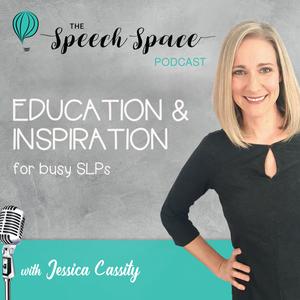 The Speech Space Podcast
The Speech Space Podcast
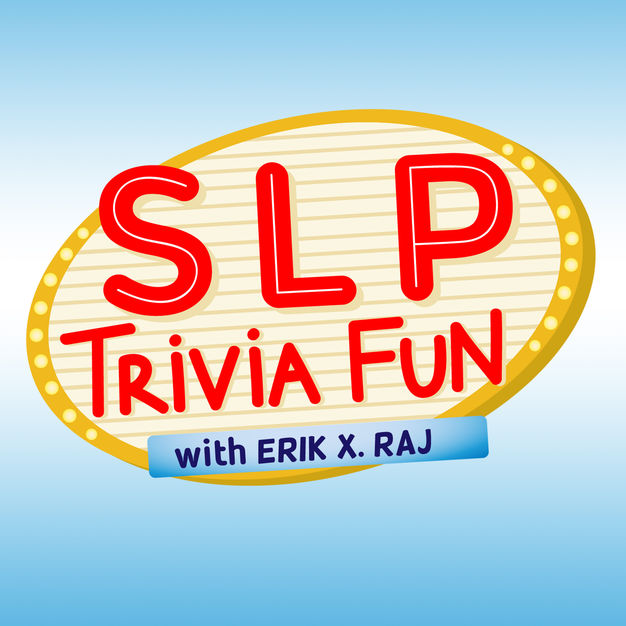 SLP Trivia Fun
SLP Trivia Fun
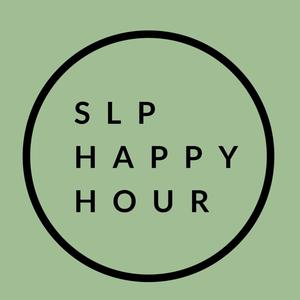 SLP Happy Hour
SLP Happy Hour
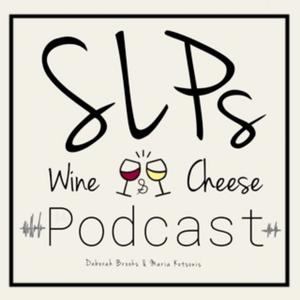 SLPs Wine and Cheese's Podcast
SLPs Wine and Cheese's Podcast
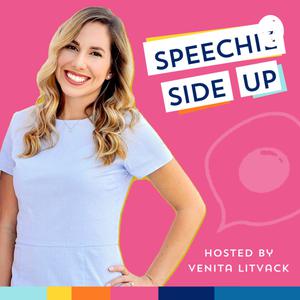 Speechie Side Up
Speechie Side Up
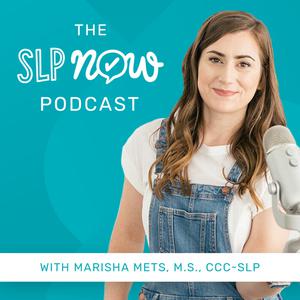 The SLP Now Podcast
The SLP Now Podcast